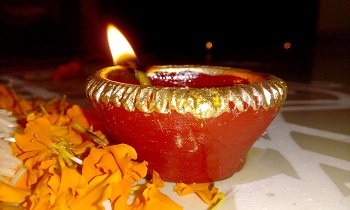The Chinese mega-giant company has worked hard to broaden its global reach this year.
Singles Day mobile commerce predictions continue to roll in as the big day approaches on November 11. Alibaba has made tremendous efforts to help to bolster its own successes on this unique Chinese day. At the same time, it is hoping to encourage a growing number of consumers to participate.
That said, most analytics firms have agreed that the participation in Singles Day 2016 should break records.
Millions of people have already been making Singles Day mobile commerce purchases. Alibaba’s CEO, Jack Ma, is hoping to be able to use this m-commerce trend to achieve greater results outside of China, as well. Though Singles Day was invented in China and is celebrated primarily there, Alibaba is looking to use it as a jumping off point.
 November 11 is Veterans day in the United States. This makes it unlikely to be a great date to try to carry Singles Day over to this part of the world. That said, the company is hoping to keep the shopping momentum going in the US as the holiday season follows closely on its heels.
November 11 is Veterans day in the United States. This makes it unlikely to be a great date to try to carry Singles Day over to this part of the world. That said, the company is hoping to keep the shopping momentum going in the US as the holiday season follows closely on its heels.
Singles Day mobile commerce is a more recent phenomenon that started over desktop in 1993.
The day was created by a group of male Nanjing University students. They decided that 11/11 was the perfect numerical date to represent a celebration of being single. Though it had a slow start and was limited to a small local movement over e-commerce, Alibaba made it big. The company decided to take hold of the movement, which saw growing popularity, and monetize it.
By 2009, the company’s massive e-commerce platforms, Taobao and Tmall, were raking in cash through online purchases. The first Singles Day observance brought an estimated $7 million in sales. Even in a market the size of China, that figure is impressive, though not at all tremendous. By 2010, far more retaielers were on board, including one of the main rivals of Alibaba in China, JD.com.
The next year, Alibaba alone generated $820 million in sales. By last year, that figure had risen to $9.3 billion, credited greatly to Singles Day mobile commerce trends. Since 2012 the sales have been greater than those seen on Cyber Monday in the United States and it is expected that they will be even higher this year.

 This shift in consumer behaviors has greatly altered the nature of competition among companies in the country. At no time is this competition more fierce as the festive season provides the leading opportunity for Indian retailers to draw consumers.
This shift in consumer behaviors has greatly altered the nature of competition among companies in the country. At no time is this competition more fierce as the festive season provides the leading opportunity for Indian retailers to draw consumers.